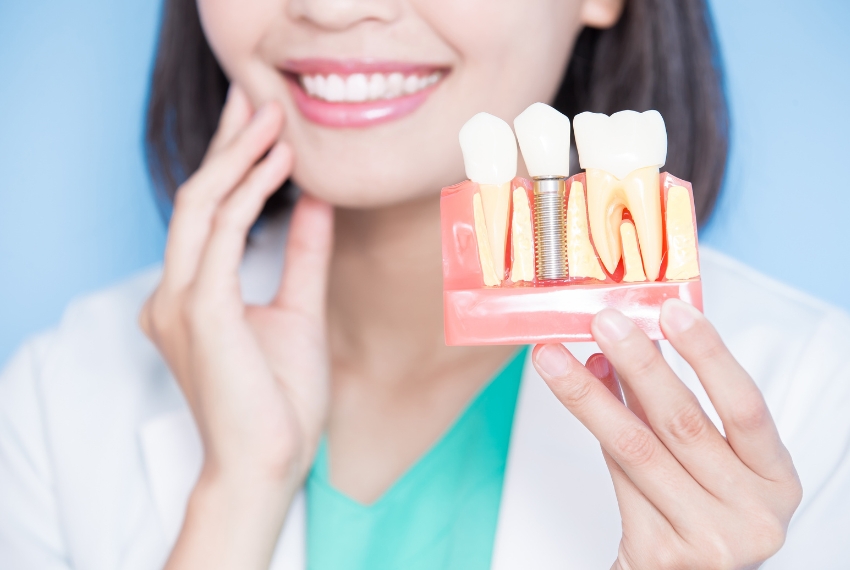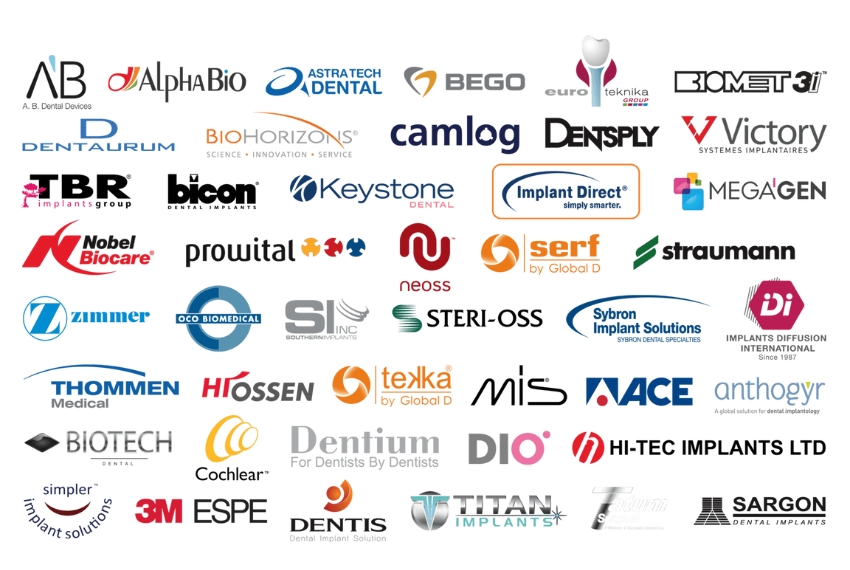
Implant Allergy
One of the most intriguing topics for people exploring implant treatment is the allergy to implants. Many patients may hesitate to undergo implant treatment due to their concerns. However, through research, it becomes clear that there is little to fear. So, what is the allergy to implants observed in patients, even though it is very rare?
Implant Allergy
The allergy to implants is usually observed in titanium and metal implants, albeit in a very low degree. Metals, in most cases, do not cause any problems in the human body. For this reason, they have been used in dental implant treatments for years. The continuous placement of the implant in the human body and its ability to move have led to unwanted problems over time.
Regarding implant allergy, the issue that dentists are investigating is known as "metal sensitivity." Developed sensitivity to metals is evident even in metal jewelry. In light of this information, it would be correct to define implant allergy as a secondary reaction in the tissue where the implant is placed.
When experts examine implant losses in recent years, they suspect that implant losses not resulting from biological or technical complications are due to an allergy to titanium. Therefore, research and issues in such cases often transform into an allergy to titanium dioxide.
Can titanium implants cause allergies?
Titanium implants usually do not cause allergic reactions. All research and expert evaluations unanimously agree on this fact. However, symptoms of an allergic reaction to titanium can rarely occur.
If the patient has a history of allergies, especially metal allergies, it is important to take this into account. Conducting an allergy history assessment before treatment is considered a useful procedure. Regardless of the results of the allergy history, allergy tests to metals should be performed to rule out the possibility of titanium allergy.
What are the symptoms of Implant Allergy?
There are some rare symptoms for those who are allergic to titanium implants. According to a scientific study conducted by the International Journal of Implant Dentistry, the symptoms of titanium implant allergy are as follows:
• Erythema (accumulation of blood in the capillaries, usually seen in the area where the implant is located)
• Urticaria (scabies, also known as hives, seen on the skin or gums)
• Eczema (itchy inflammation of the gums or skin tissue)
• Swelling or pain
• Necrosis (loss of cells or tissue around the implant)
• Loss of bone mass
• Toxic reactions in other tissues causing yellow nail syndrome. (This can negatively affect the lungs and airways.)
If you notice one or more of these symptoms, you should consult your doctor.
Titanium Allergy Test
If your dentist suspects that the issue with your dental implant is caused by a titanium allergy, they may conduct a series of tests. Whether a patient is allergic to titanium can be determined through various diagnostic investigations. It is challenging to compare different test studies because they use diverse tests. So, what are these tests?
Patch Test: As of today, there is no standardized patch test for titanium. Positive reactions have been reported in skin tests, although rarely.
In clinical studies on titanium allergy, the sensitivity of patch tests is estimated to be approximately 75% for type IV metal allergy. Patch tests are usually validated for exposure to epidermal antigens.
Memory Lymphocyte Immunostimulation Test: This test is validated for detecting sensitivity to titanium and other metals. However, there may be some lack of specificity in lymphocyte proliferation.
Blood Test: Assists in diagnosing type IV allergies.
Lymphocyte Transformation Test: In vitro tests performed with this method measure lymphocyte proliferation after contact with an allergen, based on the incorporation of tritiated thymidine by lymphocytes.
Zirconium Implants can be an alternative for people with Metal Allergies
The solution for a patient found to be allergic to titanium implants, which are metal alloys, after implant treatment or as a result of tests, is quite straightforward. When a patient experiences an allergic reaction, they consult with a doctor. The dentist removes the titanium implant causing the allergy and replaces it with a zirconium implant.







